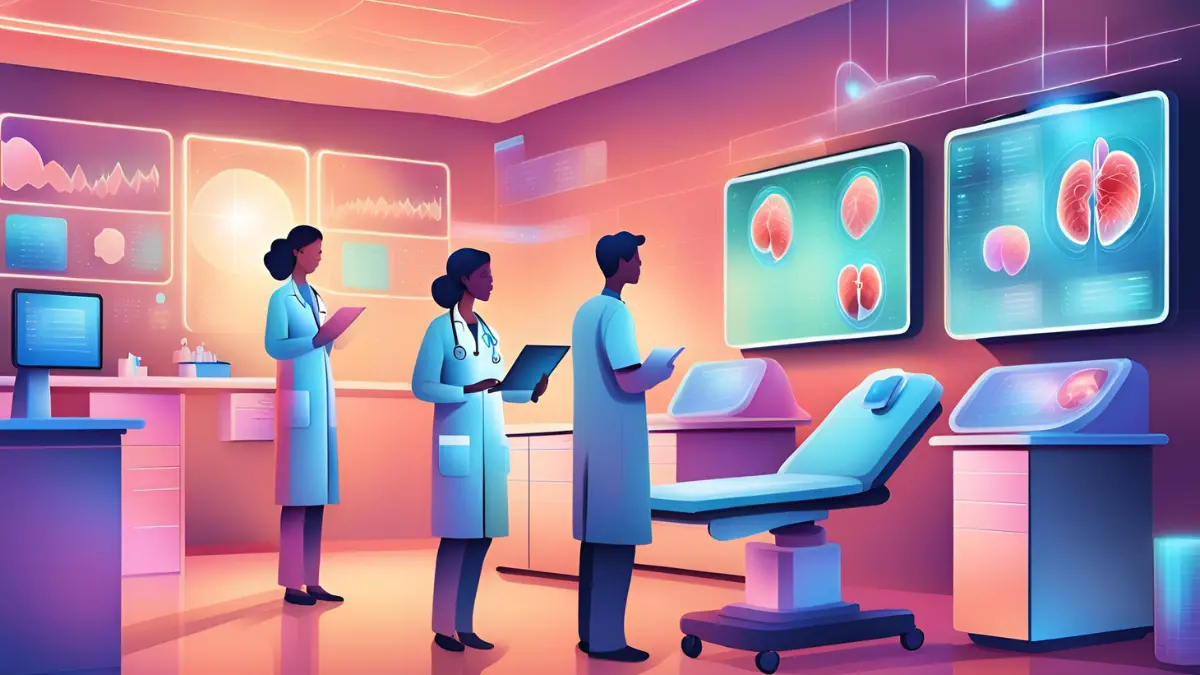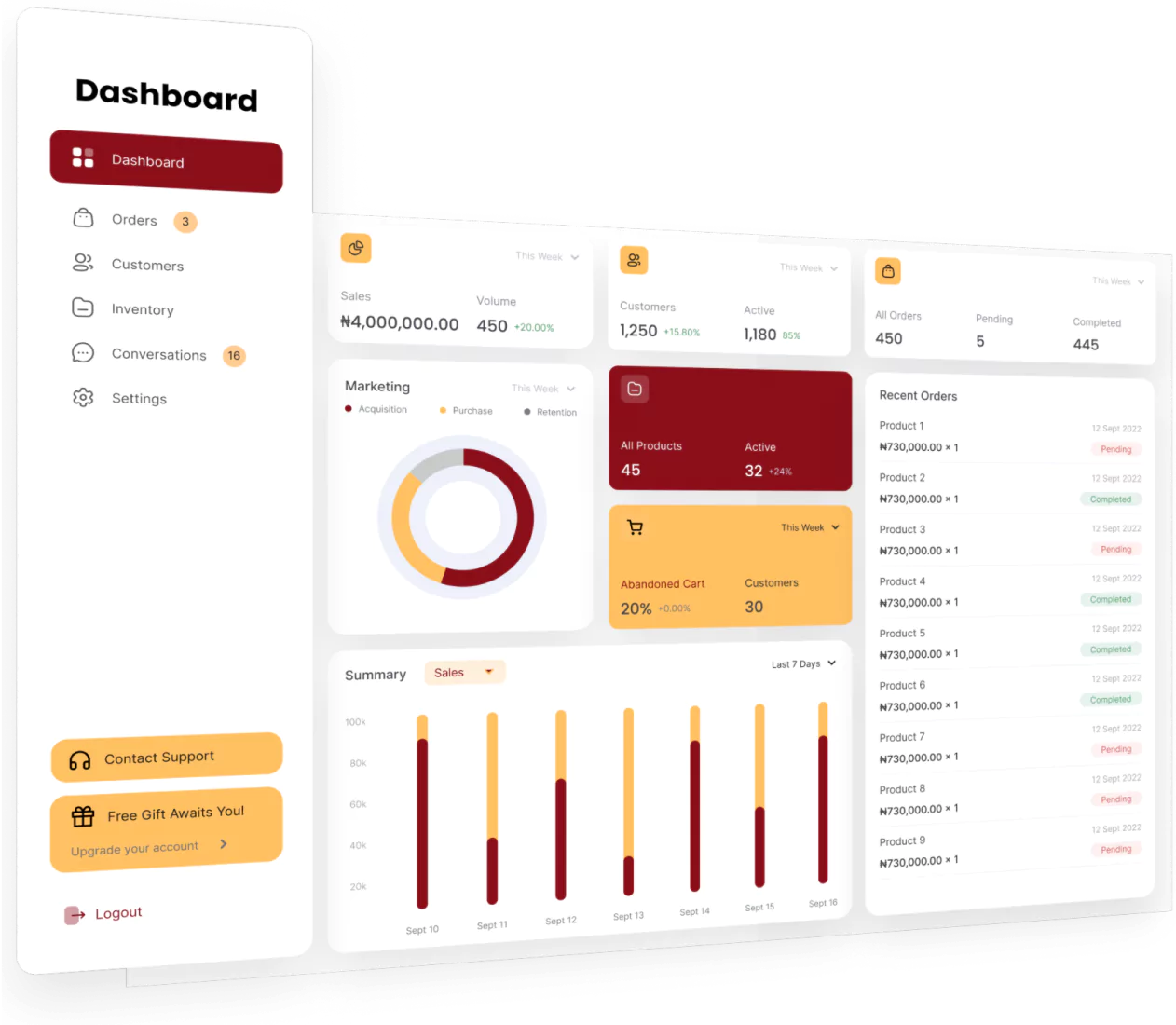Missed appointments, billing delays, inconsistent records, and manual workflows are not only operational issues but also impact revenue, patient satisfaction, and compliance.
A Clinical Management System (CMS) addresses these issues by centralizing scheduling, medical records, billing, and reporting in one streamlined platform. It is a strategic investment that increases efficiency, reduces errors, and supports growth.
In this article, Ipapaliwanag namin kung ano ang ginagawa ng CMS, ang mga problemang tinutugunan nito, at kung bakit ito mahalaga para sa mga lider ng makabagong healthcare.
Key Takeaways
|
Table of Contents

What is a Clinic Management System?
A Clinic Management System (CMS) is a comprehensive digital solution to streamline daily clinic operations. It integrates key functions like appointment scheduling, Electronic Medical Records (EMR), billing, inventory management, and reporting into a single, efficient system.
With CMS, clinic staff no longer need to switch between spreadsheets, paper documents or various software tools. Everything is centralized in one platform, saving time, minimizing errors, improving team collaboration, and enhancing the experience for staff and patients.
For the pharmaceutical industry adopting ERP for pharmaceutical industry further optimizes inventory management, ensures regulatory compliance and improves operational efficiency, creating seamless workflows across the organization.
Essential Features and Advantages of Clinic Management Software
These key features highlight how clinic management systems streamline operations, drive growth, and enhance patient care. Adopting a digital system for clinic operations is essential for the success of modern healthcare practices as patient expectations and regulatory demands continue to rise.
1. Efficient appointment scheduling
A clinic management software makes scheduling appointments more efficient and less prone to errors. This system allows clinics to easily manage patient appointments, avoid double bookings, and send automatic reminders to patients via email or SMS.
This reduces no shows and cancellations, which in turn helps optimize the clinic’s daily schedule. Allowing patients to schedule, reschedule, or cancel appointments online also provides greater convenience and reduces the administrative workload on staff.
2. Centralized patient information
One of the key benefits of CMS software is the centralization of patient information. All relevant data from medical history and treatment records to billing information is stored in a secure system. This eliminates the need to search through paper files or multiple databases.
Healthcare providers can access up-to-date and accurate information anytime, allowing for better-informed decision-making, faster diagnoses, and improved overall care. Centralized data also facilitates smoother communication between different departments within the clinic, improving coordination.
3. Automated billing and payments
Handling billing manually is time-consuming and prone to mistakes. Clinic management system automates billing and payment, from generating invoices to processing insurance claims. The system can also track patient payments, send reminders for overdue balances, and make the payment process more efficient for the clinic and the patient.
Automation reduces human errors and improves cash flow by speeding up billing cycles and ensuring that payments are accurately recorded and tracked.
4. Real time reporting and analytics
Real-time reporting and analytics are crucial for clinic managers and owners to make informed decisions. A CMS software provides in depth reporting on key metrics like patient volume, financial performance, staff productivity, and inventory levels.
These insights help identify trends, uncover areas for improvement, and make data-driven decisions to improve clinic operations. Whether you need to analyze revenue growth, track treatment outcomes, or optimize staffing.
5. Regulatory compliance and security
Maintaining compliance with healthcare regulations is essential to avoid legal and financial penalties. A CMS ensures that your clinic adheres to industry standards by securely storing patient data and maintaining detailed records of all interactions.

Discovering the Benefits of a Clinic Management System
By streamlining clinic operations a clinic management system brings several tangible benefits. Let’s take a closer look at how it directly impacts patient care, efficiency, and revenue.
- Improved patient care: With faster access to accurate patient data and seamless communication between departments, healthcare providers can make quicker, more informed decisions. This leads to better patient outcomes, fewer delays, and an overall improved experience for patients.
- Increased efficiency: Clinic management system helps optimize workflows by automating key tasks, such as scheduling, record-keeping, and billing. This allows clinic staff to focus more on patient care and less on administrative duties, ultimately enhancing overall clinic productivity.
- Automation and staff workload reduction: Automation of routine tasks, like appointment reminders and invoice generation, reduces the burden on staff. This frees up time and minimizes the chances of burnout, allowing employees to focus on more critical, patient-centric activities.
- Fewer errors and increased revenue: By eliminating manual processes, CMS significantly reduces the likelihood of human errors in patient records, billing, and inventory management. With integrated medical inventory software, clinics can better track stock levels, reduce waste, and ensure timely supply reordering.
Simplify Your Operations with HashMicro Clinic Management Software
Efficient clinic management requires the seamless coordination of multiple tasks and processes from patient data management to appointment scheduling, billing, and inventory control. Without the right tools, these responsibilities can quickly become overwhelming and lead to inefficiencies.
HashMicro clinic management software offers a comprehensive, easy-to-use platform to streamline these complex tasks, ensuring your clinic runs smoothly and your staff can focus on delivering high quality care.
Its robust features and intuitive design, this software help reduce errors, improve operational efficiency, and enhance the overall patient experience. Below are key features of the software that will transform your clinic’s operations:
- Centralized patient data: Consolidate all patient information, including medical history, treatment plans, and billing details into one secure and easily accessible system. This eliminates manual record keeping, improves data accuracy, and enables faster decision-making.
- Appointment scheduling and reminders: HashMicro simplifies appointment management by automatically scheduling visits, managing follow-ups, and sending timely reminders to patients and staff.
- Integrated billing and payments: The software automates billing processes, generating invoices, tracking expenses, and managing insurance claims seamlessly. This integration reduces administrative workload, accelerates cash flow, and ensures accuracy in financial transactions.
- Inventory management: HashMicro streamlines clinic supplies and inventory by tracking real-time stock levels. It sends automatic alerts when inventory is low, allowing you to reorder supplies promptly and prevent disruptions. Adopting hospital inventory management with HashMicro also helps optimize stock control and ensures essential supplies are always available.
- Real-time reporting and analytics: The software provides real-time insights into clinic performance allowing you to track key metrics such as patient volume, financial performance, and staff efficiency.
Conclusion
A Clinic Management System (CMS) is essential for modern healthcare offering a comprehensive solution to streamline operations and enhance patient care.
A CMS like HashMicro empowers clinics to improve efficiency, reduce errors, and ensure compliance with industry regulations by centralizing critical functions such as appointment scheduling, patient record management, billing, and reporting.
As healthcare operations grow increasingly complex, adopting a CMS is key to maintaining competitiveness and delivering high-quality care. To experience the advantages firsthand, request a free demo of HashMicro’s Clinic Management System and discover how it can transform your clinic’s workflow.

FAQ Clinic Management System
-
What are clinical management services?
It is a proactive and patient-centered approach to managing member health and helps improve health outcomes, reduce hospitalizations, and lower healthcare costs.
-
What is the purpose of management services?
Management Services can be applied to any facet or function of a business. Reducing costs, improving productivity and modernizing methods are its traditional roles. Management Services is increasingly concerned with providing facilities whereby management can be more effective.
-
What is the aim of monitoring?
The three main purposes of monitoring are: To measure performance against established targets and standards. To identify deviations from expected results and to make necessary adjustments. To provide feedback to process owners and stakeholders on the effectiveness of processes and on areas for improvement.





















